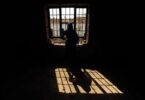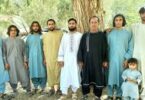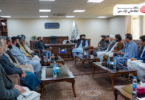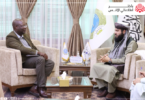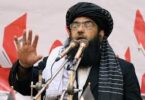KABUL (Agencies): On Saturday, the United States and the Afghan Taliban signed a peace deal in Doha, Qatar, aimed at ending an 18-year war and to gradually begin the process of Washington withdrawing its troops from Afghanistan.
For many, the deal was historic. Soon after the signing ceremony, US President Donald Trump congratulated American officials and their Afghan counterparts. Prime Minister Imran Khan welcomed the agreement and called it the “start of a peace and reconciliation process”.
But for the Afghan women, who make up 48% of the population, is the deal a cause for celebration? Over the weekend, few women were visible in the room full of men where the peace agreement was inked.
Women in Afghanistan have in the past expressed fears of losing their freedom and rights if the Taliban come back to power. Geo.tv spoke to Mariam Safi, the founder of the Kabul-based research institute Organisation for Policy Research and Developmental Studies (DROPS) and Shaharzad Akbar, the chairwoman of the Afghanistan Independent Human Rights Commission, about what this deal means for the female citizens of Afghanistan and what expectations they hold from an intra-Afghan dialogue.
The following are excerpts from the interviews:
Is the peace agreement just as historic for Afghan women as it is for the rest of the world?
Safi: This deal represents a historic event for all Afghans. For women, it inspires hope but it also inspires a sense of uncertainty as their rights will be up for debate when the intra-Afghan dialogue begins. There is no guarantee from any party on the protection of women’s rights — and human rights in general — as an outcome of these talks. It is, thus, a source of great concern.
When the Afghan government and the Taliban sit down for consultations, how significant will the role of women be?
Safi: I believe that women will have a seat on the negotiation table as a result of the advocacy efforts they have pursued since 2010 and more specifically in the recent two years following official US-Taliban talks.
However, women activists, NGOs and rights organisations are very cautious that the role of women on the table might only end up being symbolic. Therefore, they have already started taking active measures to ensure meaningful participation of women during all phases of the talks and to provide substantive support to these women.
What are some key factors Afghan women should bring to the table before the accord is signed between the government and the Taliban?
Safi: For Afghan women, it is not only a question about securing women’s rights but the protection of the pillars of democracy such as the Constitution, which has enshrined human rights, freedom of speech and press, and all other civil liberties. Afghan women have already shown degrees of comprise, therefore, they are insisting that any changes to the Constitution must come through the constitutional mechanisms prescribed therein.
However, women will not accept a complete withdrawal of their rights resulting from an amended or new Constitution after a possible agreement between the Taliban and the State.
As a woman living in Kabul, do you fear that there could be a rollback on the rights women currently enjoy in the country?
Safi: I fear that there might be a rollback on women’s rights, but to what degree will depend on the active mobilisation, advocacy and lobbying efforts of women’s activists, women based-organisations and networks and the general civil society.
The role played by the international community will also be essential in terms of facilitating opportunities for women, supporting women’s groups to raise their voices and putting pressure on the negotiating parties to acknowledge their concerns.
What are your concerns with the new deal and what should women demand from a human rights perspective?
Akbar: Firstly, we must ensure inclusion. Secondly, the parties involved in the talks must commit to respecting human rights and thirdly, any agreement must build upon Afghanistan’s existing human rights and not take away from it. These three key points are what the civil society and women expect from the intra-Afghan dialogue.

